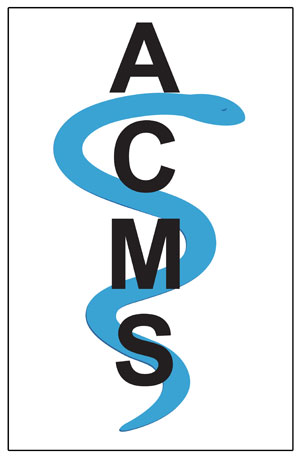Call for Scientific Posters
December 1, 2022 – UF Professional Park, Gainesville, FL
Abstract Submittal Deadline: November 4, 2022
Poster Submittal Deadline: November 20, 2022
Sponsored by:
The Alachua County Medical Society invites all Residents, and Fellows to submit a scientific poster at the 5th Annual ACMS Poster Symposium. The symposium is divided into two categories (Basic Research and Clinical Case Reports) and provides young physicians with an opportunity to network and share their significant research and clinical work with colleagues, professors and peers.
Poster Presentation Guidelines
General Poster Symposium Categories: Basic Research and Clinical Case Report
Platform Presentation: 50 Projects with the highest scores in advanced judging will be invited to present their posters at the 2022 ACMS Poster Symposium event on Thursday evening, December 1st from 6:00pm to 8:00pm (Set up is from 4:30 – 5:30pm). At the competition, onsite judges will review and score the posters, selecting the three highest scoring posters to be awarded $500 Scholarships.
Rules for Submission of Posters:
- Presenting author(s) must be a resident, or fellow in Alachua County.
- Deadlines:
- Abstracts must be submitted by November 4, 2022
- Posters must be submitted by November 20, 2022
- Submissions must be emailed to acmsassist@acms.net or submitted online at acms.net (under Events).
- Presenting author(s) MUST be able to attend and present at the Symposium on Thursday evening, December 1, 2022.
- Applicants are limited to ONE poster submission per author.
- Each author may present ONE poster only at the December 1st presentation
- The presentation should be presented on a single poster. The project must be printed on paper and mounted on poster board for the December Symposium presentation.
- Save your file using the naming convention lastname.firstname.
- Landscape orientationpresentations only. Set page dimensions at 40.97” x 23.04”, which is a 16:9 ratio.
- The night of the Symposium, your presentation should be no longer than 10 minutes, leaving time for Q&A with the judges.
- Judging for the general poster competition will take place between 6:00 pm and 7:30 pm.
- Length should be 1 page of content.
Content and Ethical Considerations: Posters are intended to convey a scientific result and may not contain advertisements for commercial interests, products or services. Volunteer physician members of the ACMS will make final decisions about eligibility. The ACMS reserves the right to deny any application that, in the opinion of the reviewers, is deemed promotional, commercial or unethical. All posters must be approved by their participating medical facility prior to submission (UF Health, UCF or North Florida Regional Medical Center).
The three highest scoring projects will each receive a $500 scholarship from the ACMS and be automatically accepted into the Florida Medical Association 2023 David Paulus Poster Symposium in Orlando Florida, Summer Meeting 2023. The highest scoring posters will be announced at the end of the evening on December 1st. All Poster Presenters and their guests are invited to attend the General Poster Competition event.
The three high scoring posters must also submit their posters (to the FMA)for the FMA David Paulus poster competition to be held in August 2023, in Orlando, Florida. Deadline for FMA uploads will be June 2023. See https://www.flmedical.org/florida/Florida_Public/Events/AnnualMeeting/2022/2022_Poster_Symposium.aspx
for additional information.
On-Site Judging: Eligible presentations will be reviewed by a team of Judges based on the following CRITERIA:
- Project/case report design and methods: Project/clinical vignette is clearly designed; scientific/clinical procedures are appropriate and well organized; Author uses a logical scientific method and appropriate methodology/relevant history, physicals, and complementary studies are included; Presenter exhibits a good understanding of the methods used/case report.
- Data: Effort has been made to identify all significant variables affecting the experimental results/case report, and those variables not manipulated as part the experimental design have been controlled or there is an organized and logical algorithm of case presentation; Clinical topic is interesting and relevant to scientific knowledge; Data is presented in a clear and understandable manner with an effort to eliminate bias.
- Discussion/Conclusion: The effect of experimental error was estimated and considered when drawing the discussion/conclusion or the discussion/conclusion are relevant and pertinent to the case; Potential pitfalls and limitations of the project/case have been addressed; The discussion and conclusion use relevant sources to compare and contrast the information that exists in literature; the conclusion is consistent with the date and/or observations/case.
- Organization/Visual Presentation: Visuals are easy to read and logically organized; Grammar and syntax are correct.
- Presenters must be able to:
- Explain the project/case report concisely
- Clarify the relevance of the project/case
- Answer questions thoroughly
Tips:
- Your poster should be a “visual overview” of your project or case.
- It should be able to stand alone without any explanation or accompanying presentation.
- Hone the available information, data, and graphics carefully so that everything included supports and contributes to the ability of your poster to convey an easy-to-grasp message.
- Be sure added technology supports a quick visual overview of your project or case.
Judges want to see that you are able to artfully depict the scientific value of your project or case at a glance, rather than create a technological masterpiece that relies on embedded animations, videos, and pages of information.
Basic Research
- Purpose: Why was this study/research performed?
- Methods: How has this problem been studied?
- Results: Principal data and statistical analysis?
- Discussion: What is the interpretation of the data?
- Conclusion: What is the relevance to practice or future research?
- References: Provide up to three references if applicable.
Clinical Case Report
- Introduction: Explain the background of the case, including the disorder, usual presentation and progression, and an explanation of the presentation if it is a new disease. Case presentation: Includes all relevant details concerning the case.
- Conclusion: State clearly what can be concluded from the case report, and give a clear explanation of the importance and relevance of the case.
Thanks to our Sponsor of the 2022 ACMS Poster Symposium:



